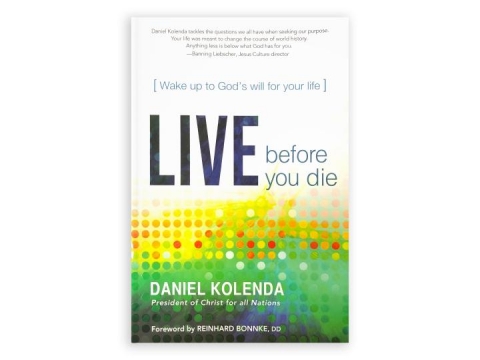In Matthew 14 we read an amazing story about a miracle where Jesus fed a multitude with just five loaves of bread and two fish. Not only did the meagre lunch become enough to feed thousands of people—it became more than enough! After everyone had eaten, there were still twelve baskets full of bread and fish left over! But before the small lunch became a mighty feast, before the little became much, before the miracle of multiplication could take place, it says in verse 19 that Jesus “took the five loaves and the two fish, and looking up toward heaven, He blessed the food, and breaking the loaves He gave them to the disciples, and the disciples gave to the crowds” (NAS). Notice something very important here. It says Jesus did two things: first, He blessed the food, and second, He broke it.
Jesus blesses only what He breaks. God can multiply only what has been broken. Do you want God to take your little life and do something mighty with it? Do you want to be blessed and be a blessing to multitudes? Then you need to be broken.
Verse 20 is careful to specify that the baskets left over were made up of “broken pieces”—“They picked up what was left over of the broken pieces, twelve full baskets” (NAS). At the end of our lives, when all is said and done, and everything has been consumed, the only parts of our lives that will have lasting value are the broken pieces. The way the world looks at things is so different from the way God looks at them. The world values the lofty, powerful, proud, and big. God values a broken and a contrite heart, a heart that is humble and bowed low before the King.
In Isaiah 66:2 the Lord says, “This is the one I esteem: he who is humble and contrite in spirit, and trembles at my word” (NIV). The psalmist says in Psalm 51:17, “The sacrifices of God are a broken spirit; a broken and contrite heart, O God, you will not despise” (NIV).

